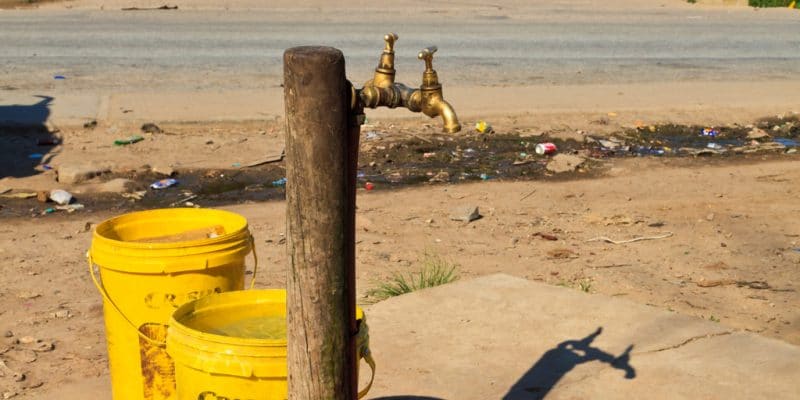Mauritanian President Mohamed Ould Cheik Ghazouani has launched a project to rehabilitate and extend the national water distribution network in the country's capital, Nouakchott. This project will help to combat the water shortage that has been affecting this North African country for some time. The overall cost of implementing this project is estimated at $40 million.
Nouakchott is in need of water. In recent weeks, several districts of the Mauritanian capital have been deprived of water. People are scrutinising the taps, which remain desperately dry. It is difficult, if not impossible, to obtain a drop of water in some districts, particularly those of Socogim K and PS). “The national water company has not yet given any explanation for the disruption of supply that is causing inconvenience to the population,” explains a Mauritanian, interviewed by the newspaper Articletelegraph. In the last few days, the price of a water canister has risen. In Mauritania, water demand is estimated at 100,000 m³ per day, while production capacity is around 55,000 m³. And the country has only one water supply source: the Trarza groundwater, located in the east of the country.
Forty million dollars to improve water supply
To ensure better water distribution in the city, President Mohamed Ould Cheikh Ghazouan launched a project on November 12, 2019 to rehabilitate and extend the running water supply network in the capital. This project is financed by the Mauritanian government and the Islamic Development Bank (IDB). Its total cost is $40 million. “The project will be carried out as soon as possible, in accordance with the required standards and norms in terms of quality, control and monitoring. This will increase pressure and flow for universal drinking water coverage in the city of Nouakchott,” said the Minister of Hydraulics and Sanitation, Naha Mint Mouknass.
Mauritania has set itself the challenge of completing the implementation of this project by 2022. A modern distribution network will be set up as part of this initiative. In total, 900 kilometres of pipe will be installed and 60,000 connections made free of charge to households. Two pumping stations will be built to the east of the city. One of the project’s components involves the construction of a pumping station and a reservoir with a volume of 5000 m³. Measures that can then improve the rate of access to drinking water in Mauritania. A rate that currently stands at 68%.
Luchelle Feukeng






